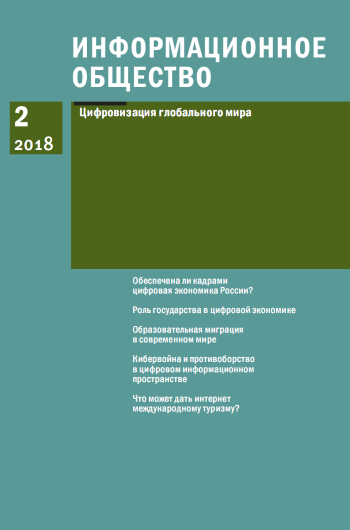Problem of Staffing the Digital Economy Development in Russia: Bottom-up Approach
Keywords:
digital economy, staffing, shortage of staff, programmers, researches, the “Scopus” database, Big Data, G20.Abstract
The issues related to staffing the Russian digital economy development are considered. It is demonstrated that there are certain difficulties in managing the human resources capacity of the digital economy, emerging due to uncertainty in assessment of both the number of actively working software developers and those who possess such skills and are able to use them in their work. At the same time, high human resource potential of the IT-sector in Russia (4-6% of all programmers in the world) has not yet been transformed into a corresponding high share of the digital economy in Russia's GDP and the share of the Russian digital economy in the world (2.8% in 2016 year and 2.3% of total share of the digital economy (only the G20 countries).
Scientific support for the creation of "Big Data" technologies and their use in researches conducted in various branches of science is also not sufficient for a breakthrough development in Russia. There are just over 1% of all publications in the global scientific space covering this topic.
It is assumed that the development of the digital economy in Russia will require not only (and not so much) concern for staffing, but a high level of creating conditions for work of the highly qualified personnel. Empowered leaders of large scientific, innovative and educational clusters, which are likely to be prototypes of future large companies directly involved in digitization of economic and technological breakthrough, are needed.
